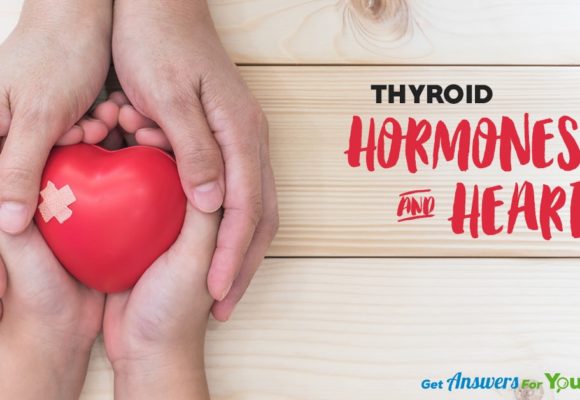1) Grab a FREE copy (Value $14.95) of one of my books Thyroid Symptom Overload
Just pay shipping $7.95 for any US orders. Or, if you want to pay full price plus shipping, order from Amazon :)
2) Take our Thyroid Quiz today and find out what "Thyroid Type" you have
This quiz will help you quickly discover where your symptoms are stemming from.
3) Join Our Thyroid Advocate Membership Site - Natural Thyroid Academy
FREE for a limited time. No credit card required.
4) Work with me and my team privately
Schedule your FREE 15 minute phone consultation and we can find out the best way to help you specifically.
On occasion, life has a way of bringing about struggles. At every step, we face new challenges and potential disappointments. We encounter many different problems and stress ourselves physically, emotionally and spiritually. But life goes on.
How do we gather so much strength to face any difficulty? The answer lies in “adrenal glands”! Our body has this “super hero” gland that helps us get through the difficult situations in our life. But when our adrenal glands are compromised, problem begins!
Importance Of the Adrenal Glands:
The adrenal gland is an organ located on the top of each kidney that produces many important hormones. These hormones include adrenaline, cortisol and aldosterone. The adrenal cortex, the outer portion of the gland, produces the hormone cortisol that is of particular importance to manage stress. Cortisol also functions to metabolize sugar and fats for the body to use them.
The other hormone produced by adrenal cortex is aldosterone. It regulates the blood pressure and maintains a balance of fluids and electrolytes. The adrenal medulla, the inner portion of gland, produces another important hormone, adrenaline aka epinephrine. Strong emotions like fear or rage causes epinephrine to be released in blood that causes your heart to beat faster, your muscles to tone up and your metabolism to accelerate (sympathetic nervous system).
The Consequences Of Adrenal Fatigue:
“I remain tired all the time. I try to manage my job but I’m failing at it badly.” If you’re complaining like this, let me tell you it is not mere exhaustion or fatigue. It can be much more than that and you have to find out the reason!
Adrenal fatigue is the milder form of adrenal insufficiency where the adrenal gland fails to produce enough hormones. As the name indicates, the biggest concern in adrenal fatigue is fatigue. It doesn’t wash away whatever you do, even after you sleep. Many people use coffee or other stimulants to keep them active. This shows the importance of our body’s natural system of stress regulation through cortisol (adrenal hormone).
Adrenal fatigue most often arises due to chronic stress, when body fails to cope with it. Sometimes it may be the result of infection. Adrenal fatigue is basically a group of symptoms known as a syndrome. The common symptoms are fatigue, restlessness, low body temperature, low blood sugar and mild depression. Blood tests are not sensitive enough to detect a small decline in adrenal function. As adrenal fatigue is a minor fault in the adrenal glands’ capability to produce hormones, it usually is not diagnosed on the basis of blood tests. However, your body does confirm the diagnosis by giving you signs and symptoms. Please consult your medical doctor.
Adrenal Fatigue And Thyroid, All That You Need To Know:
Adrenal fatigue is oftentimes overlooked in traditional medicine. If you are fatigued, can’t cope up with work, have consistent low temperature, diagnosed with hypothyroidism, been through a traumatic and stressful life but your symptoms don’t improve with medications, you need to consider the possibility of adrenal fatigue. Adrenal fatigue is closely associated with hypothyroidism and sometimes causes it.
- Initial Flooding Of Cortisol:
When our body experience any stress, the adrenal gland releases high amounts of cortisol to keep the body functioning. After the stress is lifted, cortisol concentration returns to normal. However, in chronic stress, either the stress is really prolonged or one stress is followed immediately by the other. This puts an increased demand on adrenal glands to produce cortisol. In other words, chronic stress causes increased amounts of cortisol production.
Cortisol competes with sex hormones for the same precursor, pregnenolone. Increased cortisol production depletes pregnenolone. As pregnenolone stimulates thyroid hormone production, its decreased level causes decreased thyroid hormone production. Also, when stress triggers the cascade of stress hormones particularly cortisol, it causes the other systems to temporarily hold on and sometimes to shut off. Basically it deprioritizes the systems that don’t help to overcome the stress like digestion and thyroid hormone production as well.
- Plummeting Of Cortisol Levels:
More and more cortisol is released with chronic stress. This fatigues the adrenal gland and ultimately the adrenal gland is no longer able to keep up the pace. In adrenal fatigue, to enhance survival, our body tries to save the little energy by shutting down the metabolism. This metabolic down regulation is brought on by decreased thyroid hormone levels. Less energy outputs technically decrease body work load that is the requirement in chronic stress. But as the body does so by shutting the synthesis of thyroid hormones, it manifests with the symptoms of hypothyroidism.
Hypothyroidism Due To Adrenal Fatigue:
Adrenal fatigue can cause thyroid hormone production to slow down, causing hypothyroidism. Cortisol released during adrenal fatigue is responsible for two other ways to decrease the availability of thyroid hormones. Be it less production of thyroid hormones or less conversion of thyroid hormones to their active form, overall adrenal fatigue decreases the available thyroid hormones in blood.
- Increased TBG:
TBG (thyroxine binding globulin) level is increased by the indirect influence of increased cortisol levels. As the name indicates, TBG binds to thyroxine, T4 (thyroid hormone). For a hormone to exert its function, it needs to be in its active form and not in its bound form. So TBG causes decreased availability of the active form of the hormone by binding to it.
- Increased Inactive Form Of T3:
T3 exists in two forms i.e. free form and reverse form. Free form of T3 , known as FT3, is the active form that causes T3 to perform its function. While reverse T3 (RT3) is the inactive form. Stress hormones cause increased conversion of T3 to its reverse form thus putting the brake on its function.
Conclusion:
Adrenal fatigue is the exhaustion of the adrenal gland. As a result, it doesn’t produce enough hormones required by the body. Adrenal fatigue itself manifests as fatigue, low body temperature, loss of body hair, low blood pressure and mild depression which are the same symptoms as hypothyroidism. However, sometimes adrenal fatigue is the cause of diminished thyroid functioning known as secondary hypothyroidism. Whatever the case, it is essential to consult with your medical doctor to treat adrenal fatigue.
References:
https://www.endocrineweb.com/endocrinology/overview-adrenal-glands
http://www.webmd.com/a-to-z-guides/features/adrenal-fatigue-is-it-real#1
http://adrenalfatigue.org/what-is-adrenal-fatigue/
https://www.amymyersmd.com/2017/03/adrenal-thyroid-connection/
https://www.drlam.com/blog/adrenal-fatigue-vs-hypothyroidism-part-1/3643/
https://chriskresser.com/5-ways-that-stress-causes-hypothyroid-symptoms/
http://www.forefronthealth.com/hypothyroidism-and-adrenal-fatigue/
http://hypothyroidmom.com/a-balancing-act-between-your-adrenals-thyroid-sex-hormones/
https://www.everydayhealth.com/hs/healthy-living-with-hypothyroidism/adrenal-fatigue/








